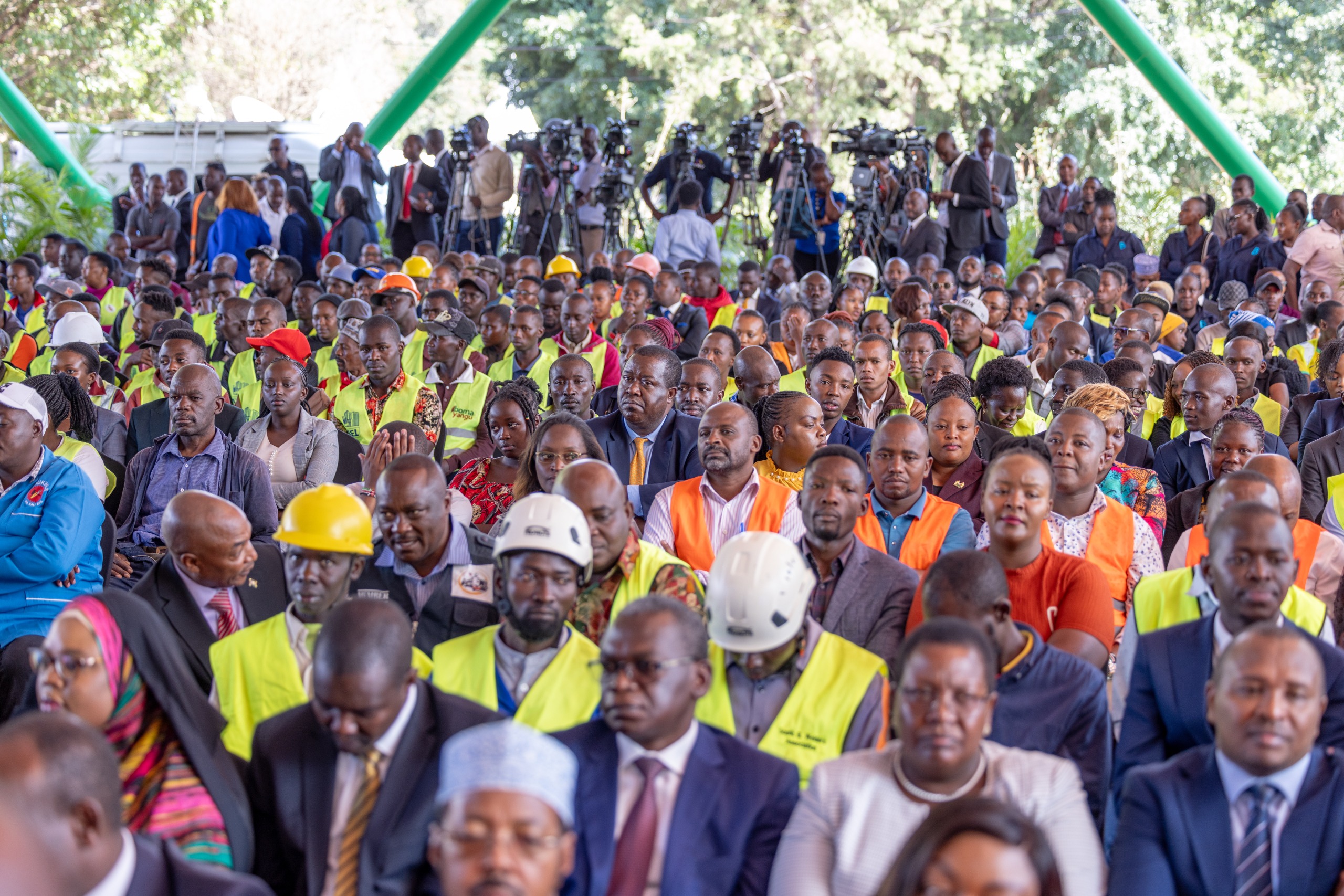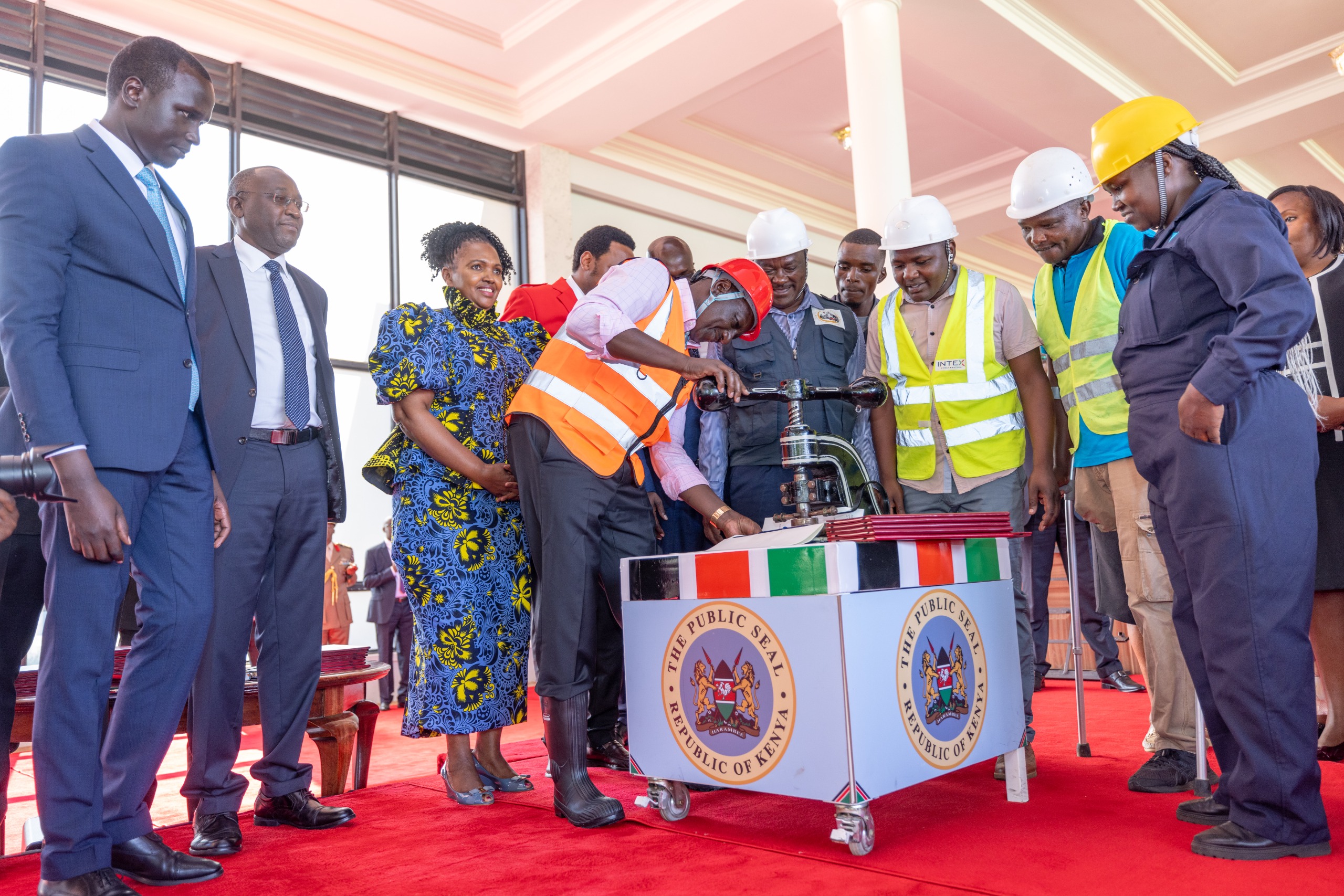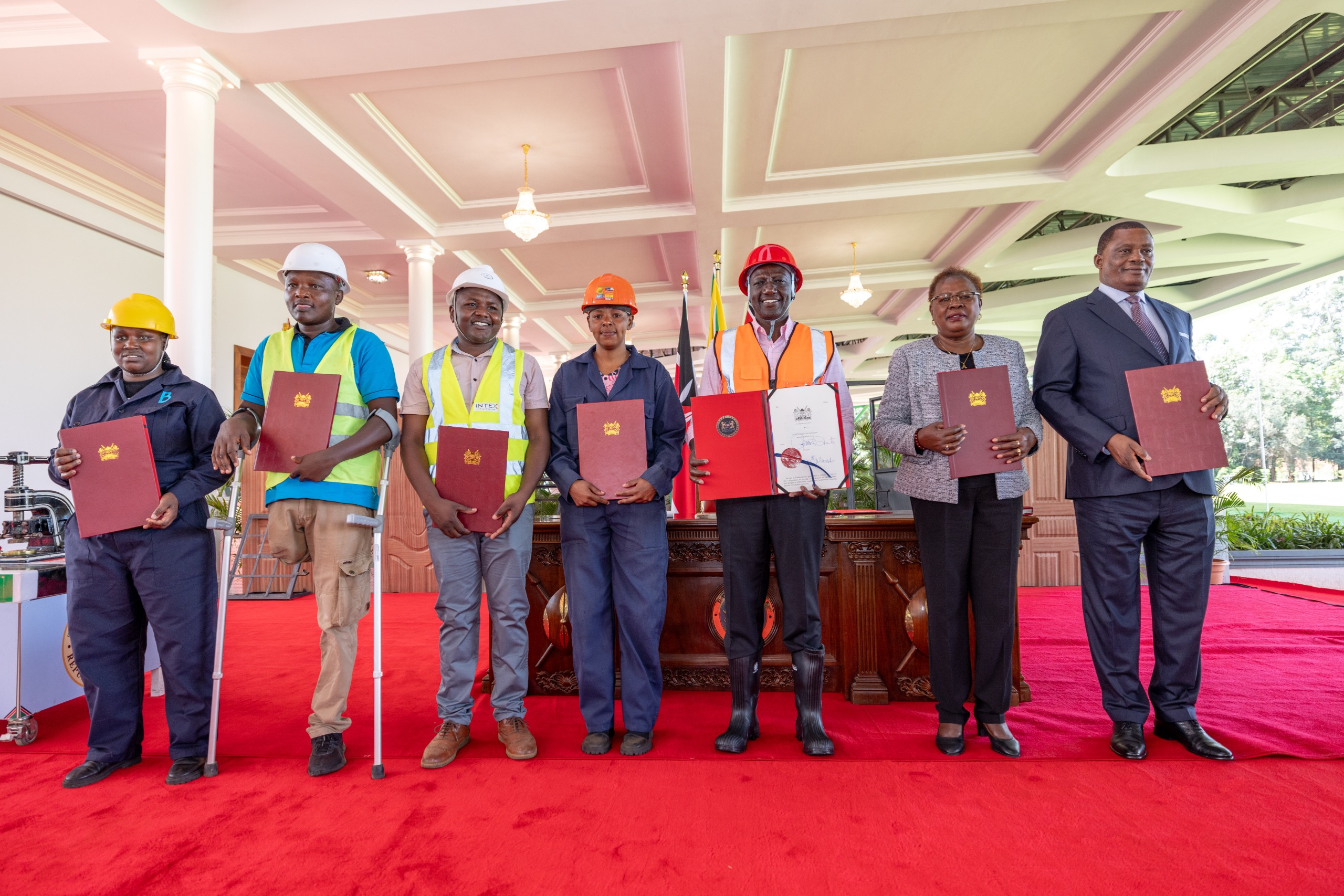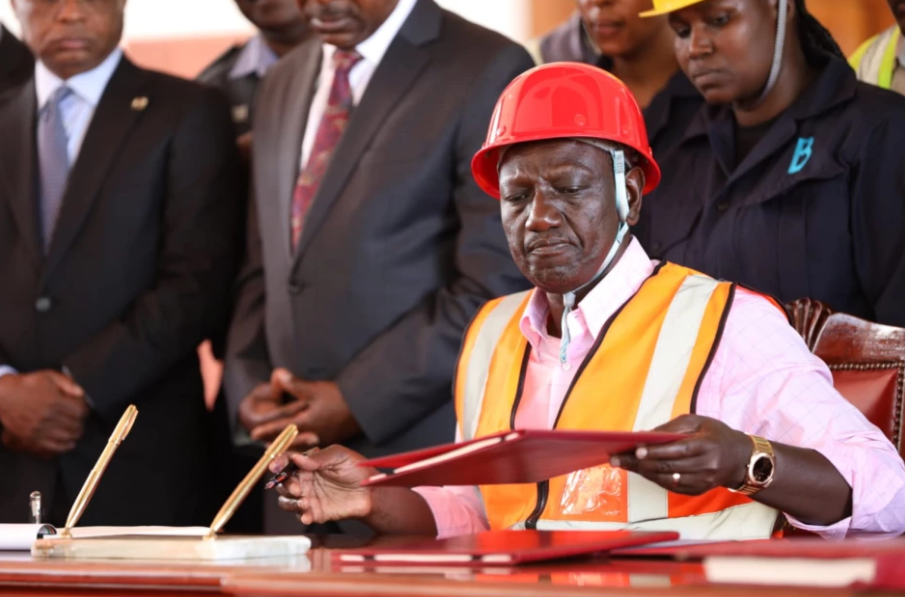President William Ruto has officially signed the Affordable Housing Bill into law, marking a significant development in housing policy.
The signing took place at State House, Nairobi, on Tuesday, culminating in the reinstatement of the contentious housing levy deductions.
In line with recent legislative changes, both the Senate and the National Assembly endorsed the bill last week, incorporating various amendments, notably extending its scope to include county governments.


As stated by President Ruto, “All employers and employees will now contribute a deduction of 1.5% from their monthly incomes,” reinforcing the financial implications for citizens.
- Kenya’s Affordable Housing Bill Raises Taxation Concerns For Non-Salaried Citizens
- President Ruto To Approve Affordable Housing Legislation
- Frida Mokaya Appointed As Chief Registrar Of Judiciary
Assent to the Affordable Housing Bill, State House, Nairobi. https://t.co/le6QKrBcvq
— William Samoei Ruto, PhD (@WilliamsRuto) March 19, 2024
The bill’s journey faced legal hurdles, with the High Court deeming the levy unconstitutional in 2023, a decision upheld by the Court of Appeal, citing its introduction without proper legal backing.
Addressing these concerns, President Ruto’s administration emphasized the suspension period as an opportunity for comprehensive restructuring, establishing a robust legal framework for the levy.


Outlined within the legislation are four key components of Affordable Housing, catering to various income brackets: the Social Housing Unit, Middle-Class Housing, General Affordable Housing, and Rural Housing.
Implementation responsibilities are distributed among several institutions, including the Ministry of Housing, National Housing Corporation (NHC), county governments, and private entities vetted by the Affordable Housing Board, tasked with managing the fund.
Furthermore, the bill emphasizes prioritizing slum areas for housing development, alongside measures to prevent the improper allocation of housing units.
An additional focus lies on utilizing locally sourced construction materials and labor, fostering community involvement, and stimulating the domestic economy.
Through the enactment of this legislation, President Ruto’s government seeks to address the pressing need for affordable housing while ensuring equitable access and sustainable development.


KenGen Awards Contract To Upgrade Oldest Geothermal Power Plant In Olkaria

